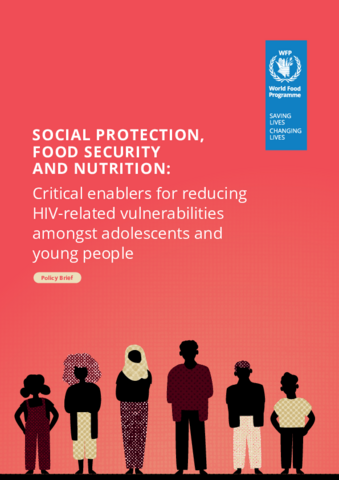
This policy brief is the result of a long-term collaboration between WFP, Oxford University and Cape Town University to generate evidence underscoring the critical role of food security in a global AIDS response. Food security has been proven yet again to reduce HIV risk and negative coping strategies, especially among adolescent girls and young women.
The brief is based on an extensive review of evidence and innovations on social protection in eastern and southern Africa. This policy brief highlights the centrality of social protection in reducing HIV-related vulnerabilities in adolescents and young people, with a focus on adolescent girls and young women. Responding to a growing interest around age- and gender-sensitive social protection provisions, the brief will be relevant to both policy makers and development practitioners working on social protection, HIV prevention, and gender equality. HIV and AIDS continue to hinder human capital development in sub-Saharan Africa, with a disproportional effect on the most vulnerable groups, such as adolescents and young people. Social protection provisions, including food and cash support, play an important role in addressing these structural drivers, reducing new HIV infections and supporting safe transitions to adulthood.
